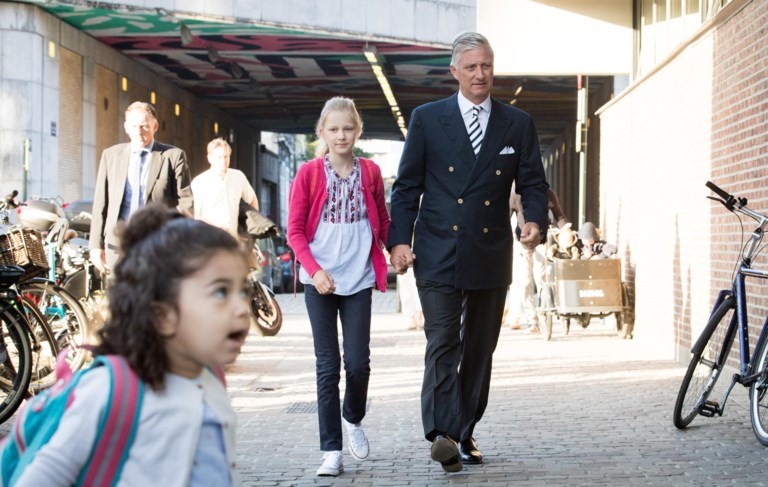One of Belgium’s leading child psychiatrists, Dr Peter Adriaenssens, has accused the former King Albert II and Queen Mother Paola of “child neglect” in the upbringing of the reigning King Philippe.
Adriaenssens makes the claim in a documentary series “Filip Van België” to be broadcast by the VRT tomorrow evening. Philippe’s upbringing, he says, was “unacceptable, something that would justify the intervention of emergency workers.”
The first episode of the series last week looked at how Philippe grew up in a household where his parents were largely absent. As the brother of the monarch, King Baudouin, Albert took on few official duties, and was generally considered something of a playboy.
And, as we now know, he was also having a long-term affair with the wife of a rich businessman, with whom he had a daughter who has now proved his parenthood in court.
“In 2020, we would call what King Philippe experienced as a child emotional neglect,” Adriaenssens says in tomorrow’s episode.
“Emotional neglect is a form of child abuse,” he says. “It is also the form of child abuse that occurs most often, but which we talk about least. I think it is important that we mention that, regardless of the person, because it explains a lot.”
In the absence of his father, the young Philippe turned to his uncle Baudouin, whose protégé he became. He adopted Baudouin’s strict Catholic views, but also his shy reticence – Baudouin had come to the throne in 1951 only because his own father, Leopold III, was forced to abdicate over his wartime conduct. (His older sister Astrid was at that time excluded from the succession by the law of male primogeniture.)
The awkward, retiring prince might have succeeded Baudouin when he died in 1993, but the politicians of the time, led by prime minister Jean-Luc Dehaene, thought he was immature and unsuitable, and Albert became king instead.
In the documentary, Adriaenssens makes clear he is not a confidant of the king, and is not speaking as his psychiatrist, but is relying on his own experience.
“Over the past 15 years we have learned a great deal about the impact of emotional neglect. Today we know that emotional wounds influence the development of skills such as attention, concentration, memory, motor skills, and that one of the most important effects is that the child does not learn to deal with emotions. If the people you need to have around you – your parents – are always absent, then you don't learn to talk about emotions. You learn that life is not safe.”
“The lack of any feeling of safety translates into posture, and a lot of the lives of those children take place in their heads. They think a lot, but don't say much about what they think. They develop an evasive style. You have learned that the people who should love you are absent, so you become suspicious. Emotional neglect has a serious impact on your development. Many people experience what he has been through.”
Adriaenssens is speaking out, he says, because other children might benefit from the example of the king.
“He [Philippe] has said a few times in the media in recent years that he did not have such a nice childhood,” says the psychiatrist.
“I think that's an important exemplary function. The fear many people who experience something like this have is: I will never be able to escape it. How do you get out of that? The king shows that people can recover from a traumatic childhood, and I find that encouraging.”
Alan Hope
The Brussels Times

